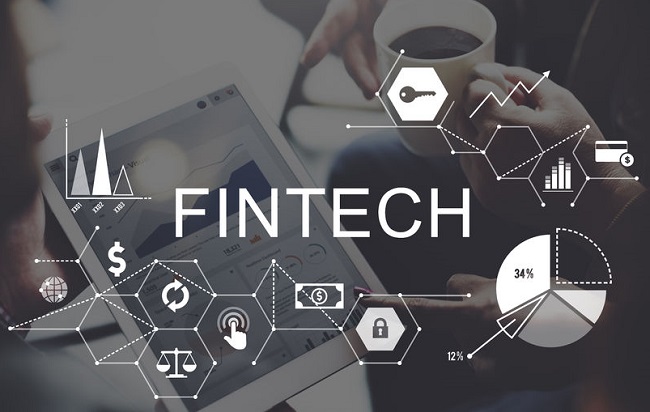Are financial institutions in Malaysia ready for fintech?
By Michelle Ong November 2, 2016
- Banks are increasingly turning to technology to improve their processes and business models
- More than US$25 billion have been invested in fintech globally over the last five years

 THE emergence of fintech startups and new disruptive technologies are changing how banking is being done and the way financial services are being delivered.
THE emergence of fintech startups and new disruptive technologies are changing how banking is being done and the way financial services are being delivered.
Spurred by competition from fintech startups — who are introducing new consumer initiatives such as peer-to-peer and marketplace lending and crowdfunding — banks are increasingly turning to technology to improve their processes and business models in order to redefine the experience for customers.
The Economist reports that more than US$25 billion has been invested in fintech globally over the last five years, and fintech firms today are challenging banks in almost every product and service area they offer.
According to an online statistics provider Statista, Malaysia’s fintech transactions totaled a mere US$6.37 million this year compared with a global figure of US$769.3 billion.
It however predicts that fintech transaction values will grow to US$14.4 billion in 2020. In Malaysia, fintech startups include Neuroware, SoftSpace and Katsana.
To counter this challenge, many banks are beginning to break down their internal business and technology silos, migrating legacy and transaction systems to more responsive solutions, and exploring better ways of sharing customer data.
Some banks have migrated some of their legacy systems to the cloud, with employees accessing a large range of data repositories. Others banks are implementing service-oriented architectures that enable interoperability and link their front-end systems and customer interfaces to common data sources and applications.
Growing risks faced
With these changes, financial institutions and banks will have to process greater volumes of data. Analysts have predicted that data used by banks will increase seven-fold between now and 2020. A lot of the data being generated includes customer financials, account information, cardholder data and transactions and personal information, all of which are regulated and potentially sensitive or private.
As digital (and mobile) transactions become commonplace, banks moving to embrace and enable the new digital economy will inevitably face increased security and data risks. They are likely to face new strains of malware and innovative phishing attacks aimed at exploiting loopholes as banks start to share more customer data between branches, mobile users, and even through the cloud.
Rising cybercrime, hacking attacks, and data leaks have boosted the importance of sophisticated security programs. The availability of more mobile smartphone platforms will also continue to expose banks to increased danger of security attacks. And Big Data breaches can also lead to serious reputational damage and legal repercussions.
Will Blockchain technology be safe?
Financial firms, faced with the need to lower costs, improve customer service, and meet regulatory and compliance requirements, are constantly on the lookout for new financial tools. Many are keeping up with innovation by experimenting with new technologies such as Blockchain − the software behind Bitcoin − and streamlining their IT operations.
Blockchain technology looks promising, as it offers a distributed file system where banks can keep copies of a file and agree on changes by consensus. The file is composed of blocks, where each block includes a cryptographic signature of the previous block.
Blockchain transactions promise settlements that are instantaneous, cryptographically secure, and publicly verified—all without the need for a trusted financial institution intermediary.
Blockchain is also inherently more secure, as the distributed nature of the transaction actually verifies the integrity of the transactions. Plus, the transaction is transparent and cannot be changed, thus making an attack extremely difficult if not impossible.
Banks are hopeful that Blockchain will be useful in securely trading anything, from remittances to securities exchanges, and become a standard for international trade.
Blockchain, however, is still largely unproven, and will take time to evolve to meet some of the more sophisticated requirements of modern banking instruments. There is also a lack of regulation, and issues of compliance, regulations and enforcement will likewise need to be addressed.
Financial institutions and banks to stay vigilant
With the emergence of fintech, security will become an increasingly critical concern to banks, and can only work if data is properly secured and protected. It is crucial, therefore, for financial institutions to develop a holistic security strategy, and be prepared in advance for emerging technologies and their security threats.
They need to be able to identify the risks that threaten customer information, and develop a plan that includes policies and procedures to manage and control these risks.
Local financial institutions must also be able to implement appropriate security controls, and to continually adjust plans to account for changes in technology, the sensitivity of customer information, and internal or external threats to information security.
And as security threats evolve, they need to be able to upgrade their defense against attacks in real time, while simultaneously ensuring data protection and regulatory compliance.
Michelle Ong is Country Manager for Fortinet Malaysia
Related Stories:
The Fintech 100 – China dominates, Singapores enters the list
SEA's fintech ecosystem has a long way to go
Blockchain ain’t what you think it is, don’t get caught up in the tech
For more technology news and the latest updates, follow us on Twitter, LinkedIn or Like us on Facebook.


